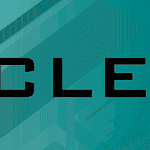Let’s talk about copyright for a second.
I am a firm believer in copyright. I appreciate that there are laws that exist that protect me as an artist. It is because I believe in copyright that I distribute my work using a Creative Commons license—it is my ownership of my work, and the legal protections that come with the recognition of that ownership, that gives me the not just the right, but the authority to use Creative Commons.
Copyright law is, at its core, a good thing. It is what gives Free Software licenses like the GPL the power to dictate the terms of use. But copyright law, like any other kind of law, can be abused, and it has been. I’ve mocked the abuse of copyright in the computer industry for fifteen years—I’m not blind to its weaknesses.
But any abuse of copyright you think you’ve seen in your lifetime is going to pale in comparison to what will happen if Congress passes either the PROTECT IP Act, which is being considered in the senate, or the Stop Online Piracy Act, which is being considered in the House of Representatives.
Here’s a little video, courtesy of americancensorship.org, that explains what the music and movie industries are trying to do:
The powers the government wants to have—the powers the MPAA and RIAA want to get the government to use on their behalf—are much, much too broad. There are no checks and balances, and there is no clear path forward if someone finds that their site has wrongly been targeted because someone, somewhere, mis-identified content as “infringing” when it was either owned by the site owner, or was used legitimately either through licensing or fair use provisions.
And, unfortunately, there is historical precedent for a site owner to wake up one morning only to discover his or her site was taken down through a DMCA notice because someone incorrectly decided the music file, book, comic, movie, or podcast contained infringing content. Already with the DMCA it can be a struggle to assert your legal ownership over content because a webhost is required by law to take down a site any time someone sends a DMCA notice. Under the new proposed laws, it goes much further than that. Your site doesn’t get taken down by your webhost (who you can, explain the situation, and get your site put back up again) – no, your site’s domain name is placed on a blacklist and the machines that direct traffic to your site are modified to send all that traffic to a website bearing a DOJ seal that says “this site has been cast into the outer darkness because it’s a dirty, dirty pirate site.” Not only that, but the DOJ can also tell PayPal, and real, honest-to-God Banks to freeze any money you may have made as a result of having that legitimate website.
In other words, if someone makes a mistake and decides that your cheerful Space Opera about a wisecracking smuggler and his merry crew isn’t actually your own work, you might learn that your site has effectively been “erased” from the Internet, and that the services you used to make money are not allowed to pay you, and that you have very little recourse to actually get it fixed. This is the same government, after all, that couldn’t figure out how to take Ted Fucking Kennedy off the No-Fly List.
So what can we do to fight this? If you’re a US Citizen, it’s a good idea to contact your representatives and tell them to vote no on both these issues. You can do that by going over to americancensorship.org and filling in the form on that page – it will be used to contact them.
That can’t be the end of it, though. It seems like this happens every damn year, and it’s the same people over and over again that keep trying to push it through. I have no idea how to effectively fight them, but they must be effectively fought.

